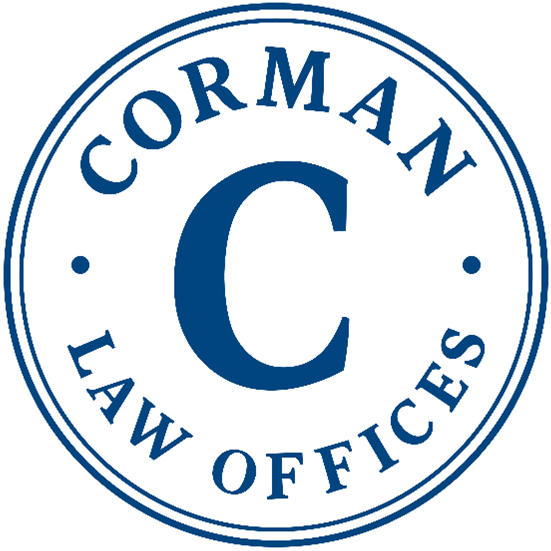Probate, Conservatorships, Trust, & Estate Administration
The Corman Law Offices also handles probates, conservatorships, and trust and estate administration. When a family member becomes incapacitated or passes away, it can be a time of confusion and sadness. Our services are meant to provide you with a smooth and economical path during this time, to aid you in this process of transition, whether a probate, conservatorship, trust administration, or estate administration is required.
Probate is generally required when a family member passes with or without a will and has an estate of over $184,500 or has a personal residence of over $750,000. It requires a court procedure that commonly lasts at least a year. A family member, or someone close to the deceased, generally acts as the estate administrator during the probate. Our office can help the administrator file the necessary court documents, appear for court hearings, notify creditors and beneficiaries, and all other probate requirements. Overall, probate can be a lengthy process, but with our help, it is manageable and affordable.
Conservatorships
When a family member becomes incapacitated or unable to take care of his or her financial or personal responsibilities or care, a conservatorship may be necessary to ensure that he or she is taken care of. A conservatorship is a court proceeding whereby the court authorizes an individual, generally a close family member, to take over the financial obligations, personal welfare, or both of the conserved person. This individual is known as the conservator. We at the Corman Law Offices can help prepare and file the extensive paperwork required to obtain a conservatorship and attend any court hearings needed and advise the conservator.
Trust Administration
A trust administration is appropriate when a trust was in place at the time of your family member’s death. The trust document generally controls how the family member’s estate will be distributed. This administration is handled by the trustee of the trust, who is in charge of administering the trust estate, allocating the estate among the beneficiaries of the trust, and eventually distributing the estate among the beneficiaries, whether retaining the estate in separate trusts for each beneficiary or distributing outright. We can provide advice and help if needed as to the next steps with regards to accomplishing the administration and prepare the required documents.
Estate Administration
When there is no trust in existence at the time of an individual’s passing, and that individual’s estate is less than $184,500 and does not contain a personal residence valued at over $750,000, whether or not there is a will, a simple estate administration can occur without a court procedure as required by probate. We can provide help with this administration, providing guidance in managing your family member’s affairs, determining any assets and liabilities, and distributing those assets to the appropriate beneficiaries, depending on the terms of the will or state law. In addition, we can assist with the required notifications and prepare documents that will aid in accessing your family member’s assets from financial and other institutions.
Our Service Area Includes the Below Cities and Surrounding Areas:
- Watsonville
- Scotts Valley
- Aptos
- Soquel
- Capitola
- Felton
- Ben Lomond
